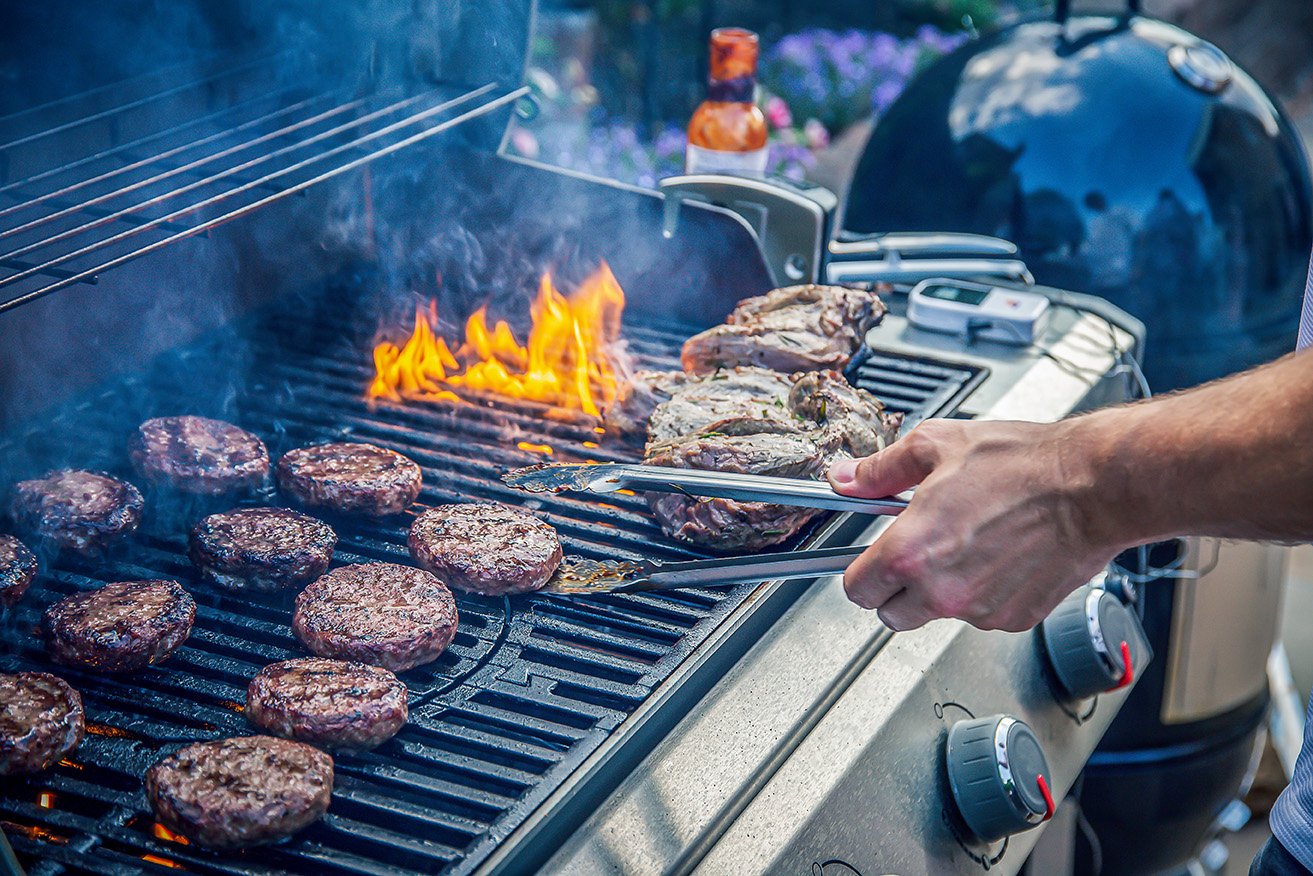It’s a favorite summer pastime to break out the grill and cook up tasty burgers and roast vegetables and other mouth-watering treats. But did you know July is the peak month for grill fires?
It’s easy to get burned … whether you’re the grill master or a small child playing nearby. Take a minute to review these important safety tips.
Gas Grills
Six of 10 households own a gas grill, and these grills contribute to higher numbers of fires than charcoal grills. Propane is extremely flammable.
According to the Consumer Product Safety Commission, the majority of fires and explosions occur when someone starts a gas grill that has not been used for a while, or just after they refill and reattach the gas container to the grill. Follow these safety tips:
- Check for leaks every time you disconnect or reconnect the tank.
- If you find a leak, turn off the gas immediately. Keep lighted cigarettes, matches and open flames away from the grill until it is fixed.
- Check the hoses for cracks, holes and leaks and ensure there are no sharp bends in them.
- Replace any scratched or nicked connectors, as they could eventually leak gas.
- Look in the tube for any blockages from insects, spiders or food grease. Use a pipe cleaner or wire to clear the blockage and push it through to the main part of the burner.
- Always store your grill outdoors in a well-ventilated area when it is connected to the propane tank, and store spare gas containers away from the grill in an outdoor space.
Charcoal Grills
The main danger of charcoal grills is carbon monoxide poisoning. Burning charcoal produces carbon monoxide, but this gas is hard to spot because it is colorless and odorless. And it can be deadly in closed areas.
- Never burn charcoal inside your home, vehicle, tent or camper, even if you have ventilation.
- Avoid storing a grill indoors with coals you have just burned. Charcoal can still release carbon monoxide until it is extinguished completely.
- Always use approved charcoal lighter fluid. You should never use gasoline to start the fire, as it will explode.
- Cap the lighter fluid immediately after you use it and store it a safe distance away from the grill.
- Be sure to use enough fluid from the start. Adding more fluid to hot coals later can create a fire or explosion.
- After you've finished grilling, let the coals cool and dump them far away from where people will be walking. Hot coals can cause severe burns, especially if children step on them before they have completely cooled.
By following these tips, you can keep your family safe while grilling your favorite foods this summer. If you do suffer any minor burns, visit your nearest Indigo Health right away. Our medical providers are available 8 am to 8 pm every day to provide fast treatment and friendly care.


